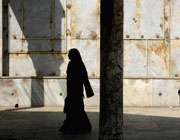

Islam sees a woman - whether single or married - as an individual in herself with the right to own and dispose of her property and earnings as she pleases. At the time of marriage, the groom gives a marriage dowry to the bride for her own personal use, and she keeps her family maiden name rather than changing it to her husband’s last name.
Both men and women are expected to dress in a way that is modest and dignified. The Muslim woman is required by the Qur’an to cover her entire body with the exception of her face and hands while in the presence of men whom she is not related to (or permitted to marry). This drees code is often referred to as the Islamic hijab.

In this section we will be pondering over the history of Head covering or Hijab as general, particularly looking at the ancient times. Our focus would be:
Whether in past history of civilizations Hijab used to exists or not?
Whether the concept of Head covering or Hijab is purely coming from Islam Prospective?
Now we will discuss the Quranic verses and after we clarify what traditional commentators have explained about the verses, then, with the help of traditions which have been narrated on this topic and the edicts of the religious jurisprudents on this issue, it will become clearer. The verses relating to the modest dress are found in Surah Nur and Surah Ahzab. We will mention all of them.
We will begin our discussion with the verses from Surah Nur. Of course the verses which relate directly to the modest dress are verses 30 and 31 of Surah Nur but there are three verses before this which are more or less introductory to the modest dress and relate to this issue.
At a time when the rest of the world, from Greece and Rome to India and China, considered women as no better than children or even slaves, with no rights whatsoever, Islam acknowledged women's equality with men in a great many respects. The Quran states:
"And among His signs is this: that He created mates for you from yourselves that you may find rest and peace of mind in them, and He ordained between you love and mercy. Certainly, herein indeed are signs for people who reflect." [Noble Quran 30:21]
Prophet Muhammad (peace and blessings be upon him) said: